What is the Strongest Essential Oil
Are you curious about essential oils and their potency?
We will explore how strong essential oils are, including factors like concentration, purity, and quality.
Discover the different types of essential oils, such as citrus, floral, woody, herbaceous, and spicy oils.
Learn about the top five strongest essential oils, including oregano, clove, peppermint, thyme, and cinnamon oil.
Find out how to properly use these potent oils for maximum benefits.
Key Takeaways:
What Are Essential Oils?
Essential oils are highly concentrated plant extracts that retain the natural aroma and flavor of their source. They are commonly used in aromatherapy, skincare, and natural remedies due to their therapeutic properties.
These oils are typically extracted through methods like distillation, cold-pressing, or solvent extraction, ensuring that their potent essence is preserved. Each type of essential oil, such as Lavender, Tea Tree, or Peppermint, boasts unique properties that offer a range of benefits. For example, Lavender oil is known for its calming and relaxing effects, making it ideal for stress relief and promoting better sleep.
Tea Tree oil, on the other hand, is renowned for its antibacterial and antifungal properties, making it a popular choice for skincare and a natural remedy for acne. Similarly, Peppermint oil is valued for its refreshing scent and ability to relieve headaches and improve focus.
What Makes an Essential Oil Strong?
The strength of an essential oil depends on multiple factors, including its concentration, purity, and overall quality. These elements determine the potency and effectiveness of the oil in various applications.
Concentration refers to the amount of the actual aromatic compounds present in the oil. The higher the concentration, the more potent the oil will be. Purity, on the other hand, relates to how unadulterated the oil is, without any synthetic additives or dilution. Quality encompasses various aspects like sourcing, extraction methods, and storage practices, all of which impact the overall effectiveness of the oil.
Identifying high-quality oils involves looking for certifications, testing reports, and reputable suppliers. Ensuring these factors are met is crucial for experiencing the full therapeutic benefits that essential oils can offer.
Concentration
The concentration of an essential oil refers to the amount of plant material present in the final product. Higher concentrations typically result in more potent oils with stronger aromatic qualities.
When an essential oil has a high concentration, it means that a larger quantity of the aromatic compounds extracted from the plant material is present in the oil. This higher concentration leads to a more robust scent profile and increased therapeutic benefits. On the other hand, oils with lower concentrations may be milder in fragrance and efficacy. It is essential to understand that the potency of an essential oil is directly linked to its concentration level. Therefore, users should consider the concentration when selecting oils for specific purposes.
Purity
Purity is a crucial factor in determining the strength of an essential oil. Pure oils are free from contaminants and additives, ensuring that their natural properties remain intact for maximum effectiveness.
When essential oils are pure, they possess a higher concentration of the aromatic compounds responsible for their therapeutic benefits. The absence of impurities in pure oils allows for a more potent and impactful healing effect when used in aromatherapy or skincare. One common method to ensure the purity of essential oils is through the process of steam distillation, where the volatile compounds are extracted without altering their chemical composition. Reputable brands often conduct rigorous testing procedures to verify the authenticity and quality of their oils, providing consumers with confidence in the purity of the products they purchase.
Quality
The quality of an essential oil is determined by factors such as sourcing, extraction methods, and adherence to industry standards. High-quality oils are more potent and provide consistent results.
In terms of sourcing, the origin of the plants used directly affects the oil’s quality. Plants grown in optimal conditions and harvested at the right time yield oils with enhanced therapeutic properties. The extraction methods play a crucial role in retaining the oil’s natural compounds and efficacy.
Quality standards set strict guidelines for every step of the production process, ensuring that each batch meets the desired potency levels. Proper processing techniques also help in preserving the integrity and purity of the oil, making it more effective when used in aromatherapy or skincare products.
What Are the Different Types of Essential Oils?
Essential oils come in various types, including citrus oils, floral oils, woody oils, herbaceous oils, and spicy oils. Each type offers unique aromatic profiles and therapeutic benefits.
For citrus oils, think of the bright, uplifting scents of lemon, orange, or grapefruit. These oils are known for their refreshing properties and ability to boost mood and energy. On the other hand, floral oils like lavender and rose have calming effects and are often used for relaxation and stress relief. Woody oils such as cedarwood and sandalwood have grounding, earthy aromas that promote a sense of stability and connection to nature.
Citrus Oils
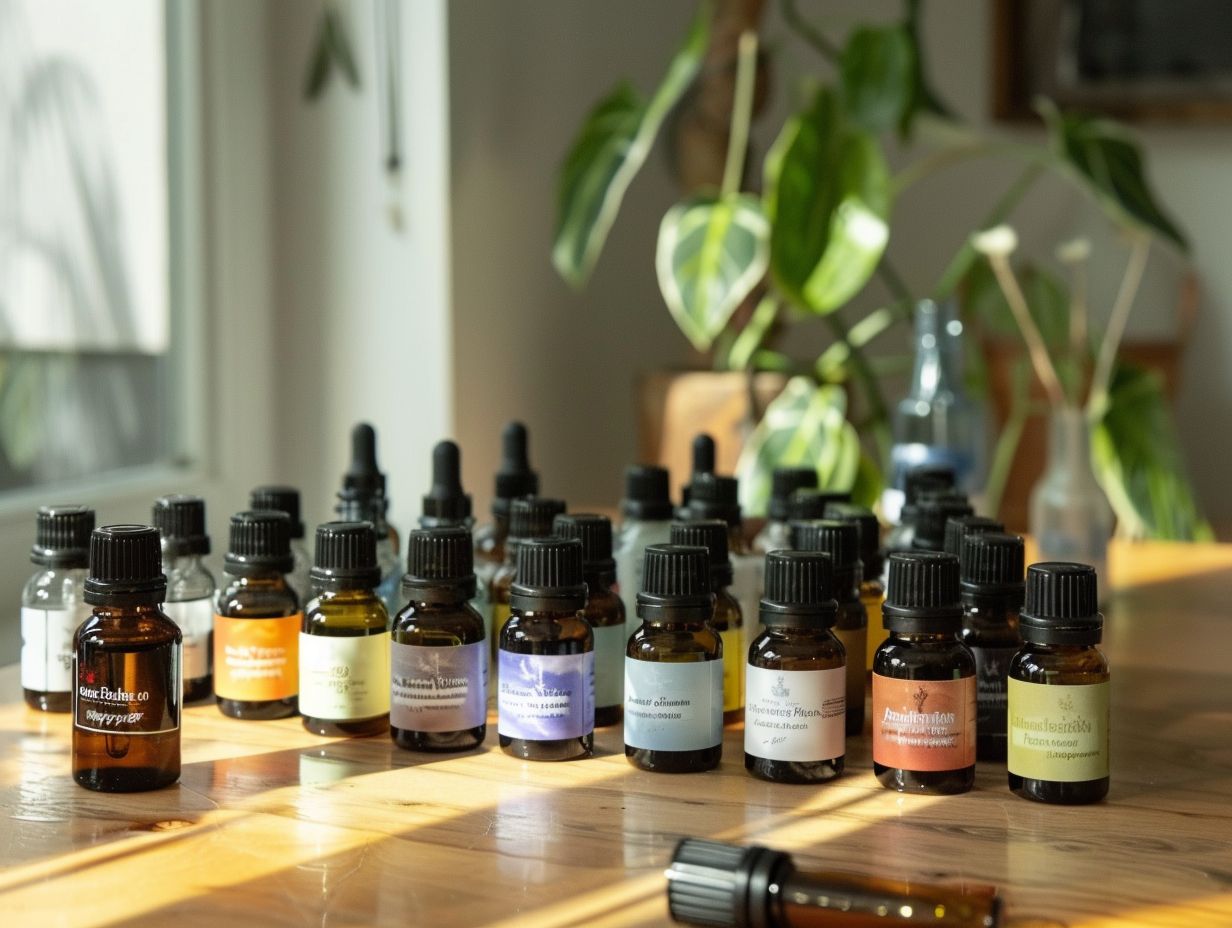
Citrus oils are derived from the peels of citrus fruits like oranges, lemons, and grapefruits. They are known for their uplifting and refreshing scents, making them popular in aromatherapy and household products.
The invigorating aromas of citrus essential oils can help elevate mood and reduce stress levels when diffused, creating a welcoming atmosphere in any space. Besides their delightful fragrance, these oils possess antibacterial and antifungal properties, making them ideal for natural cleaning solutions. Citrus oils are also commonly used in skincare products due to their ability to brighten and rejuvenate the skin, aiding in achieving a radiant complexion.
Floral Oils
Floral oils are extracted from flowers such as lavender, rose, and chamomile. They offer delicate and soothing fragrances that promote relaxation, stress relief, and emotional balance.
These floral essential oils are widely used in aromatherapy for their calming effects on the mind and body. Lavender oil, for instance, is known for its ability to reduce anxiety and improve sleep quality, while rose oil is valued for its skin-healing properties, making it a popular ingredient in skincare products.
Along with their physical benefits, floral oils have profound effects on emotional wellness, helping to uplift the mood and create a sense of tranquility. Chamomile oil, with its sweet and gentle aroma, is often used to soothe nerves and promote relaxation after a long day.
Woody Oils
Woody oils are derived from trees and shrubs like sandalwood, cedarwood, and oakmoss. They have grounding aromas that promote relaxation, focus, and a sense of stability.
These essential oils are popular for their earthy scents that evoke feelings of connection to nature. When used in meditation, woody oils can deepen the practice by calming the mind and enhancing spiritual awareness. In aromatherapy, they are prized for their calming properties, helping alleviate stress and anxiety. These oils are beneficial for skincare, as they possess anti-inflammatory and antimicrobial qualities that can help with conditions such as acne or eczema.
Herbaceous Oils
Herbaceous oils are extracted from herbs and botanicals like rosemary, thyme, and oregano. They offer fresh, herbaceous scents that promote mental clarity, vitality, and respiratory health.
These essential oils not only invigorate the senses but also possess powerful healing properties. Rich in antioxidants and antimicrobial compounds, herbaceous oils such as lavender and basil can boost the immune system and aid in fighting off infections.
When diffused or applied topically, these oils can alleviate stress and fatigue while soothing muscle aches and pains. The mint family, including peppermint and spearmint oils, are known for their refreshing and cooling effects, perfect for a quick pick-me-up during a long day.
Spicy Oils
Spicy oils are derived from spices like cinnamon, ginger, and clove. They have warm, aromatic scents that stimulate circulation, digestion, and mental alertness.
These essential oils are renowned for their invigorating properties, acting as natural mood enhancers and stress-relievers. When diffused, the spicy oils create a cozy ambiance, perfect for unwinding after a long day. Along with their aromatic benefits, they are prized in culinary pursuits for adding depth and complexity to dishes. Rich in antioxidants and antimicrobial properties, spicy oils such as clove and cinnamon are traditionally used for their therapeutic effects on oral health, aiding in relieving toothaches and promoting overall wellbeing.
What Are the Strongest Essential Oils?
Certain essential oils are known for their potent effects and high concentrations of active compounds. Oregano oil, clove oil, peppermint oil, thyme oil, and cinnamon oil are among the strongest essential oils available.
These robust essential oils are prized for their intense fragrances and versatile uses. Oregano oil, recognized for its antimicrobial properties, is often used for immune support and respiratory health. Clove oil, with its distinct warm scent, is popular in dental care and pain relief. Peppermint oil’s cooling sensation makes it ideal for soothing headaches and digestive issues.
Thyme oil, with its herbaceous aroma, is valued for its antibacterial and antifungal qualities, beneficial for skin conditions and respiratory support. Cinnamon oil, known for its sweet and spicy scent, is favored for its ability to stimulate circulation and provide emotional comfort.
Oregano Oil
Oregano oil is renowned for its potent antimicrobial properties and immune-boosting benefits. It is commonly used to combat infections, support respiratory health, and enhance immunity.
Derived from the leaves and shoots of the oregano plant, Oregano essential oil contains carvacrol and thymol, potent compounds that exhibit strong antimicrobial activity. Its effectiveness against various pathogens, including bacteria, viruses, and fungi, makes it a popular natural remedy for treating respiratory infections, skin conditions, and digestive issues.
The high antioxidant content in oregano oil contributes to its anti-inflammatory properties, aiding in reducing oxidative stress and promoting overall well-being. It can also be used topically for muscle aches and pains due to its analgesic properties.
When used in aromatherapy, Oregano oil can help alleviate symptoms of colds, coughs, and congestion. Its stimulating aroma can uplift mood and improve mental clarity, making it a versatile essential oil for both physical and emotional well-being.
Clove Oil
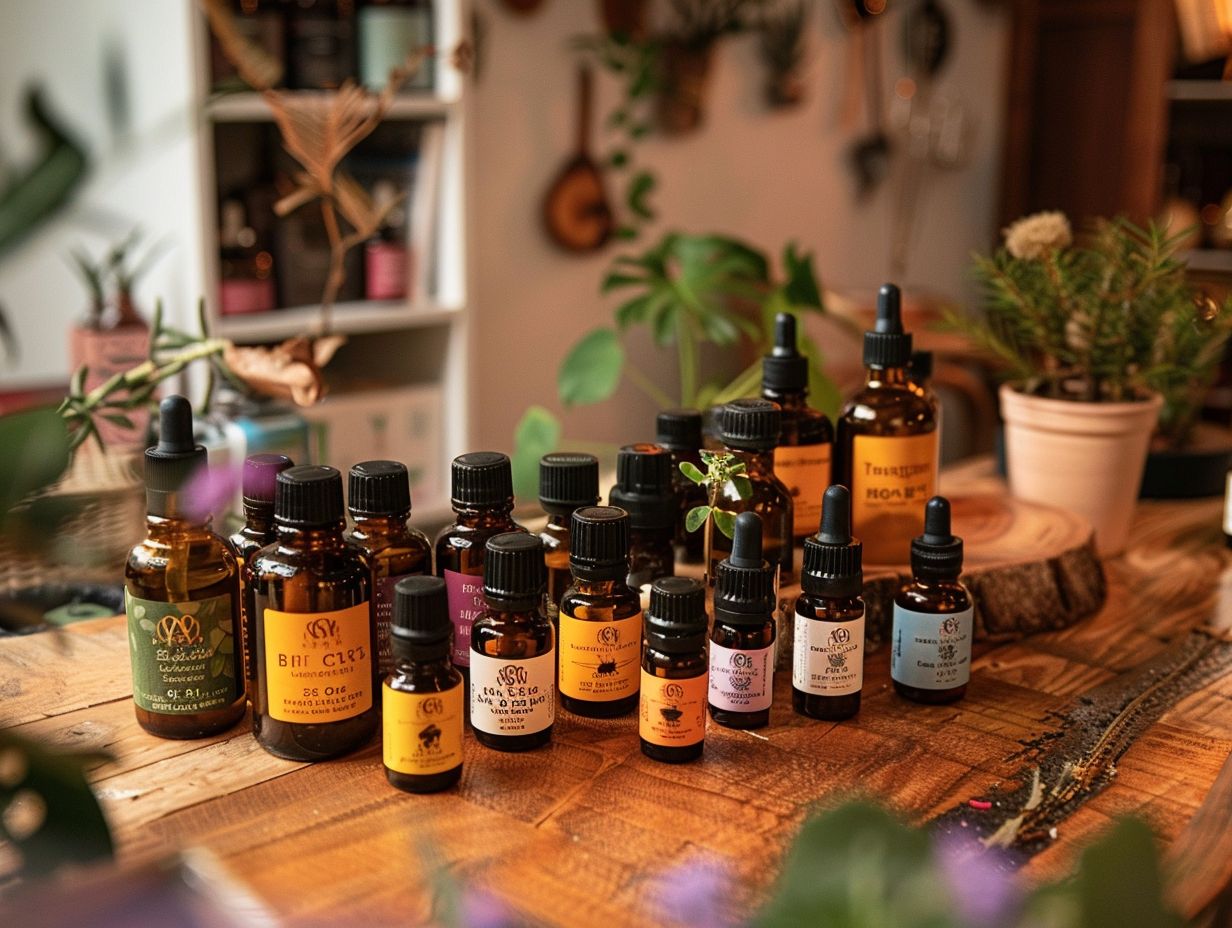
One of the standout features of clove oil is its effectiveness in addressing dental issues. Due to its powerful antiseptic properties, it can help alleviate toothaches and gum pain. Incorporating a few drops of clove oil into water for gargling can provide relief from sore throats and oral infections. Its pain-relieving properties make it a popular choice for treating headaches and muscle aches.
The antimicrobial effects of clove oil make it a versatile remedy for skin conditions such as acne and cuts. Its ability to combat bacteria and fungi can aid in wound healing and prevent infections. The oil can be diluted and applied topically to soothe skin irritations and promote overall skin health.
Peppermint Oil
Peppermint oil is a potent essential oil with cooling, invigorating properties that aid in digestion, headache relief, and respiratory support. Its refreshing aroma is widely used in aromatherapy.
Known for its versatility, this essential oil is a popular choice for addressing digestive issues such as bloating, gas, and indigestion. Its ability to soothe muscle tension and alleviate headaches is well-documented, making it a go-to natural remedy for those seeking relief.
The menthol content in peppermint oil provides a cooling sensation that can help clear sinuses and support respiratory health when diffused or applied topically. Its invigorating scent is also commonly used in DIY cleaning products and personal care items for a fresh, minty aroma.
Thyme Oil
Thyme oil is a potent essential oil with strong antimicrobial, antifungal, and antiseptic properties. It is commonly used to support immune function, treat respiratory ailments, and promote overall wellness.
Studies have shown that thyme oil possesses phenols and terpenes that contribute to its powerful antimicrobial effects, making it effective in combating various bacterial and fungal infections. When diffused or applied topically, thyme oil can help alleviate symptoms of respiratory conditions like coughs, bronchitis, and congestion. Its immune-boosting properties stimulate the body’s defense mechanisms, aiding in warding off illnesses. Incorporating thyme oil into aromatherapy routines can also provide mental clarity and relaxation, making it a versatile oil for both physical and emotional well-being.
Cinnamon Oil
Cinnamon oil is a potent essential oil with warming, spicy aromas that promote circulation, immune support, and mental clarity. Its rich scent is often used in perfumery and aromatherapy.
The circulatory benefits of cinnamon essential oil are well-documented, as it helps improve blood flow, carrying vital oxygen and nutrients to various parts of the body. Along with enhancing circulation, this oil is renowned for its immune-boosting properties, thanks to its antimicrobial and antioxidant qualities. The aromatic uses of cinnamon oil extend beyond just pleasant scents, as they can also promote relaxation and reduce stress levels. Whether diffused in a room or added to skincare products, the versatility of this essential oil is truly impressive.
How to Use Strong Essential Oils?
Utilizing strong essential oils requires careful handling and proper dilution to ensure safe and effective usage. Following recommended dosages and consulting with a professional can help maximize the benefits while minimizing risks.
When using potent essential oils, it is crucial to be aware of the importance of dilution. Strong oils can cause skin irritation or adverse reactions if not diluted properly. For sensitive individuals, extra precautions should be taken to avoid any negative effects.
- Always dilute potent essential oils in a carrier oil before applying topically.
- Adhere to the recommended dosage guidelines to prevent any potential harm.
Seeking guidance from an experienced aromatherapist or healthcare professional is highly advisable, especially when dealing with strong essential oils like oregano, cinnamon, or clove. Remember, safety always comes first when incorporating potent essential oils into your wellness routine.
Dilute Properly
Proper dilution is essential when using strong essential oils to prevent skin irritation or adverse reactions. Mixing them with carrier oils or water before topical application helps reduce their intensity.
Using essential oils directly on the skin without dilution can lead to irritation, redness, or even burns, especially with potent oils like tea tree or peppermint. Dilution not only makes them safer but also helps in better absorption and efficacy.
Carrier oils, such as coconut, almond, or jojoba, are commonly used to dilute essential oils. They not only decrease the concentration of the potent oils but also provide nourishing benefits to the skin.
The recommended dilution ratio varies depending on the oil and the intended use, but a general guideline is to mix 1-2 drops of essential oil per teaspoon of carrier oil for most applications.
Use with Caution
Caution is advised when using strong essential oils, especially around children, pets, or individuals with sensitive skin or respiratory conditions. Patch testing and avoiding direct inhalation can minimize risks.
-
It’s important to dilute essential oils before applying them topically, as their concentrated nature can sometimes cause skin irritation or allergic reactions. Be mindful of the specific safety guidelines provided for each type of oil to prevent adverse effects.
-
Proper storage of essential oils is crucial to maintain their potency and prevent accidental spills or exposure. Keep them in a cool, dark place, away from direct sunlight and out of reach of curious children or pets.
Follow Recommended Dosages
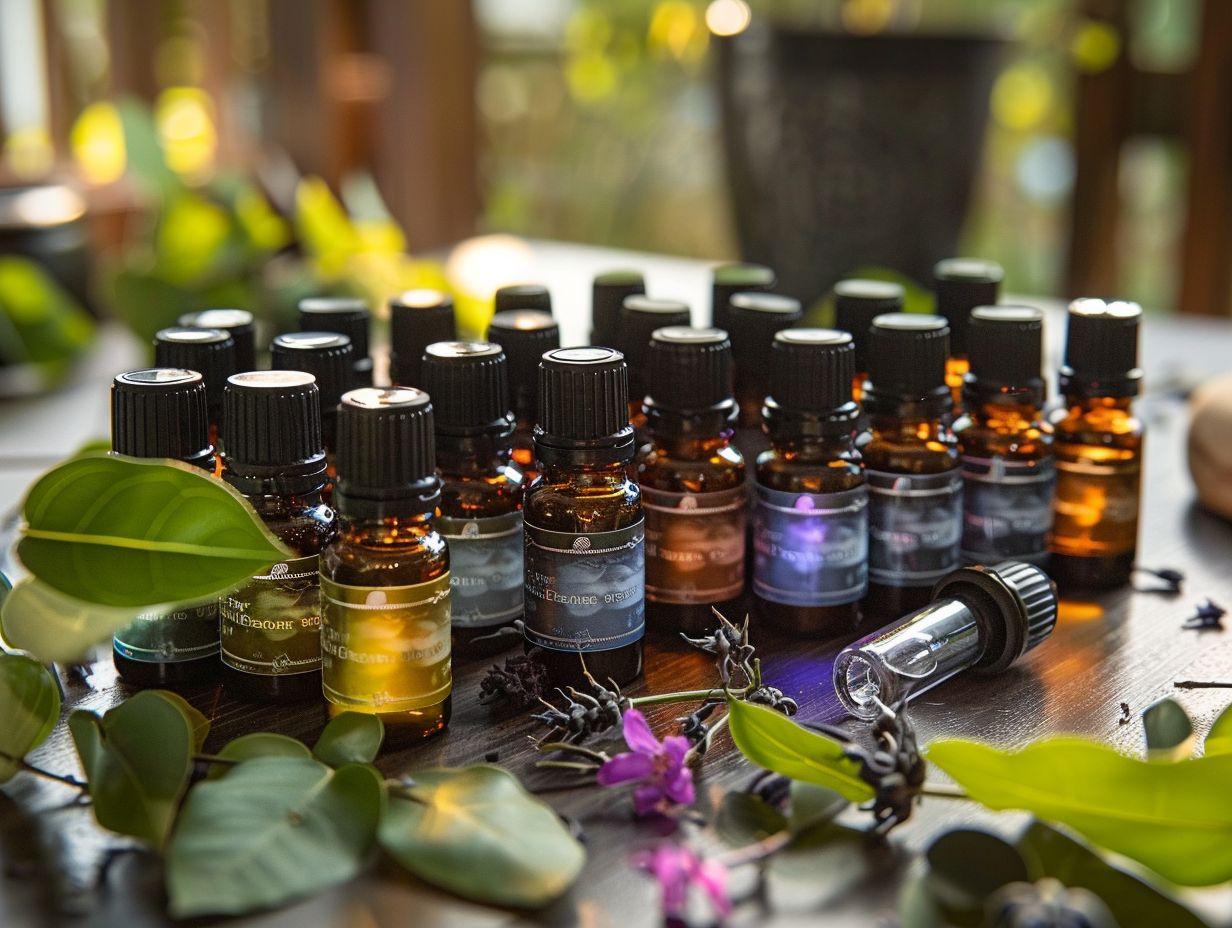
When using essential oils, always remember that a little goes a long way; highly concentrated oils can be potent even in small amounts. Overuse can lead to skin irritations, allergic reactions, or even systemic toxicity.
For topical application, dilution is key to prevent skin sensitivity or irritation. Consult a qualified practitioner or a trusted source for appropriate dilution ratios.
Be cautious with internal use, as ingestion of some oils can be harmful if not properly dosed. Always seek advice from a certified aromatherapist or healthcare professional before ingesting essential oils.
Consult a Professional
Seeking guidance from a qualified aromatherapist, healthcare provider, or essential oil expert can provide personalized recommendations and ensure safe usage of strong essential oils tailored to individual needs and health conditions.
Professional consultation is crucial when dealing with potent essential oils due to their concentrated nature and potential effects on the body. Aromatherapists can assess your health concerns, allergies, and sensitivities to recommend the most suitable oils for you. Healthcare providers have the medical knowledge to advise on possible interactions with medications or existing health conditions. An essential oil expert can help you navigate the vast array of choices available, guiding you towards the best options. When used correctly, these oils can promote relaxation, alleviate stress, and enhance overall well-being.
Frequently Asked Questions
What is the Strongest Essential Oil?
The strongest essential oil can vary depending on individual factors such as skin type, sensitivity, and personal preferences. However, some of the most potent essential oils include peppermint, clove, oregano, tea tree, and eucalyptus.
Can essential oils be dangerous if used improperly?
Yes, essential oils are highly concentrated and powerful substances that should be used with caution. Improper use, such as applying undiluted or ingesting them without proper guidance, can lead to adverse reactions. It is important to always follow recommended guidelines and consult a professional before using essential oils.
Is it safe to use the strongest essential oils on children?
No, the strongest essential oils should not be used on children. Children have more sensitive skin and may react differently to essential oils. It is best to consult with a pediatrician before using any essential oil on a child.
Are there any side effects of using the strongest essential oils?
While essential oils are generally safe when used correctly, there are some potential side effects to be aware of. These may include skin irritation, allergic reactions, and interactions with certain medications. It is best to do a patch test and consult with a healthcare professional before using any essential oil.
Can I mix different essential oils to make a stronger blend?
Yes, you can mix different essential oils to create a stronger blend. However, it is important to research the properties and potential interactions of each oil before blending them. It is also recommended to start with a low concentration and increase gradually to avoid any adverse reactions.
Which essential oil should I use for a specific purpose?
The choice of essential oil depends on the purpose or desired effect. For example, lavender is known for its calming properties, while peppermint can help with headaches and digestion. It is best to research the properties of different essential oils and consult with a professional to determine the best option for your specific needs.

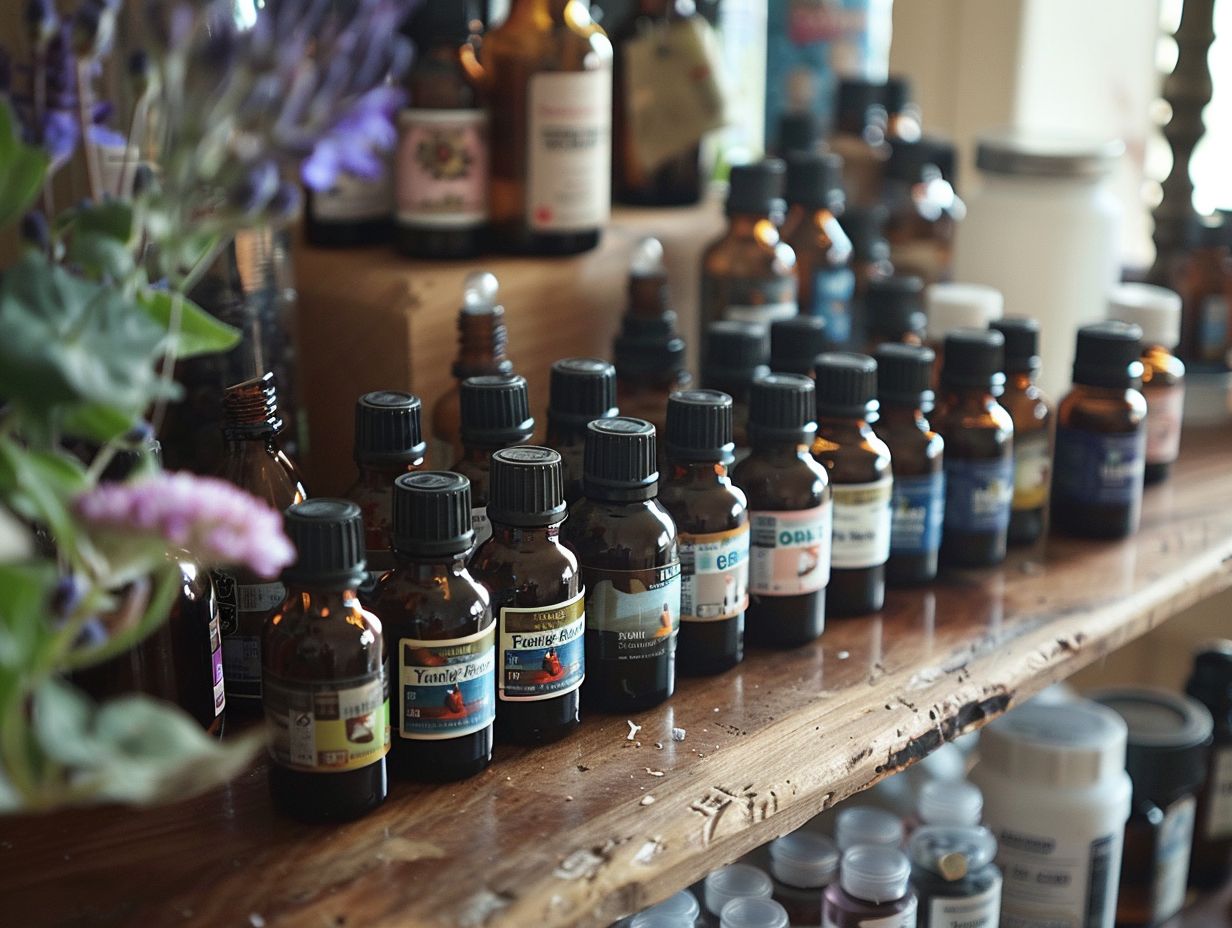
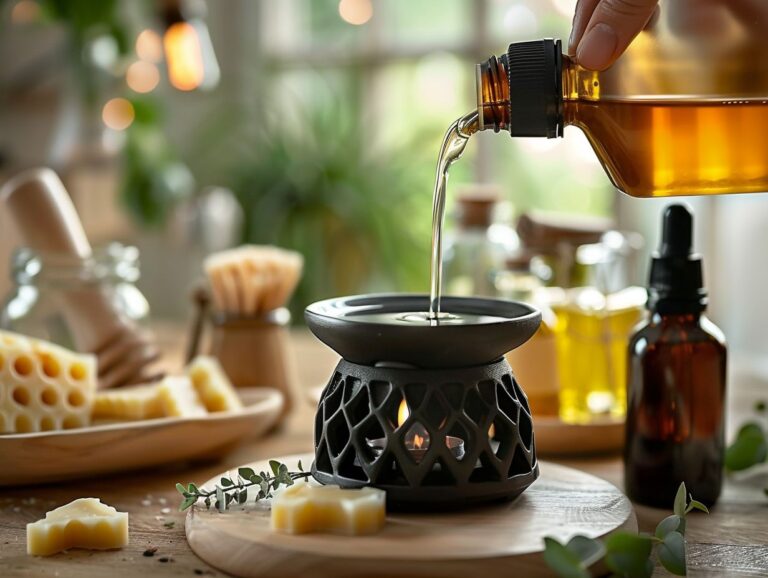

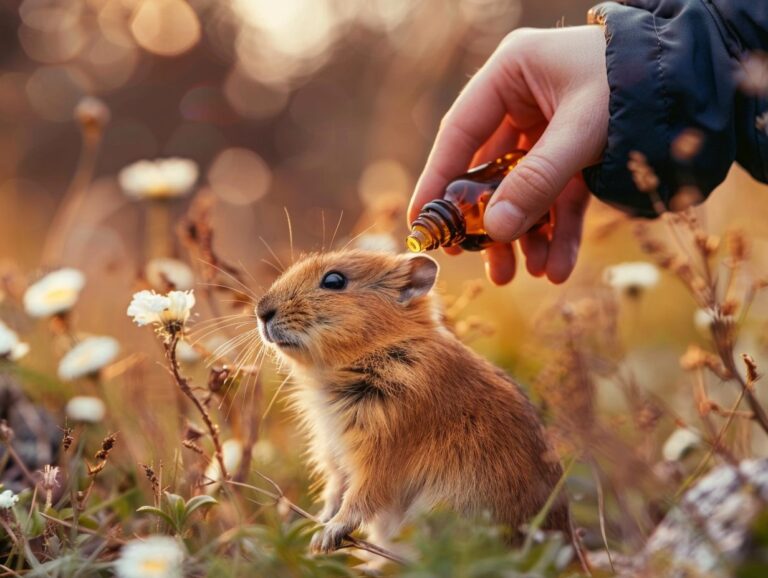
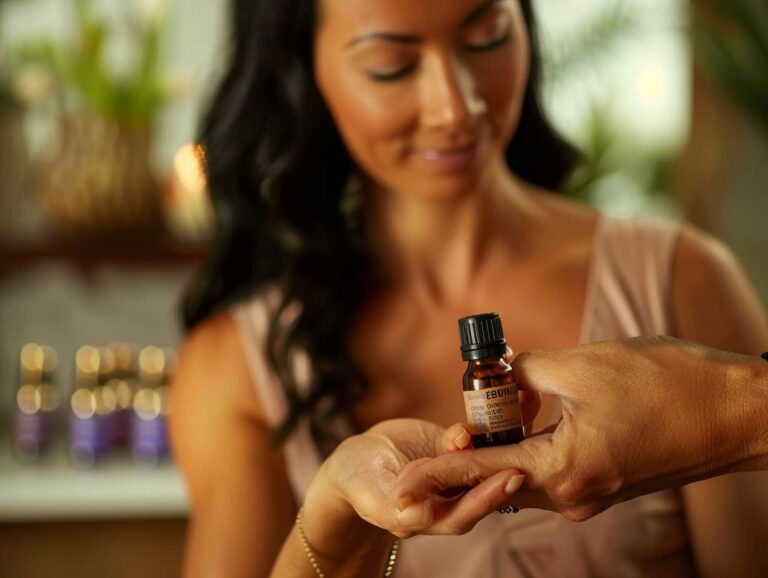
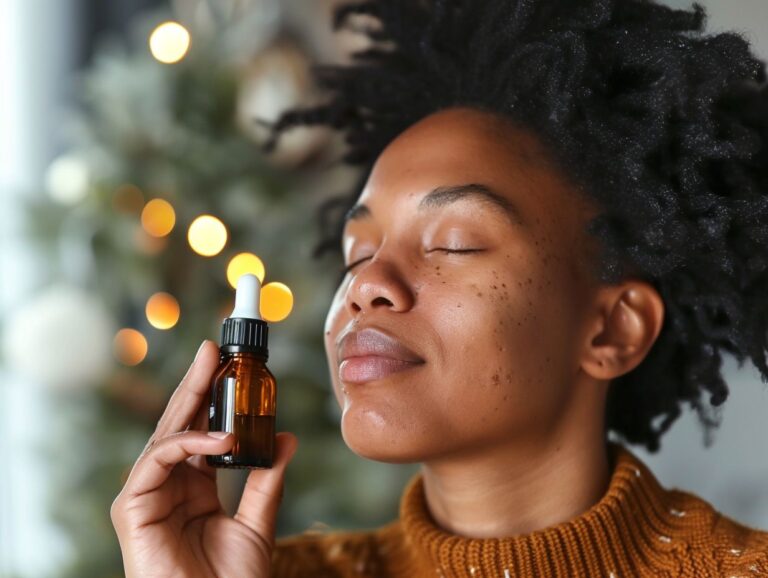
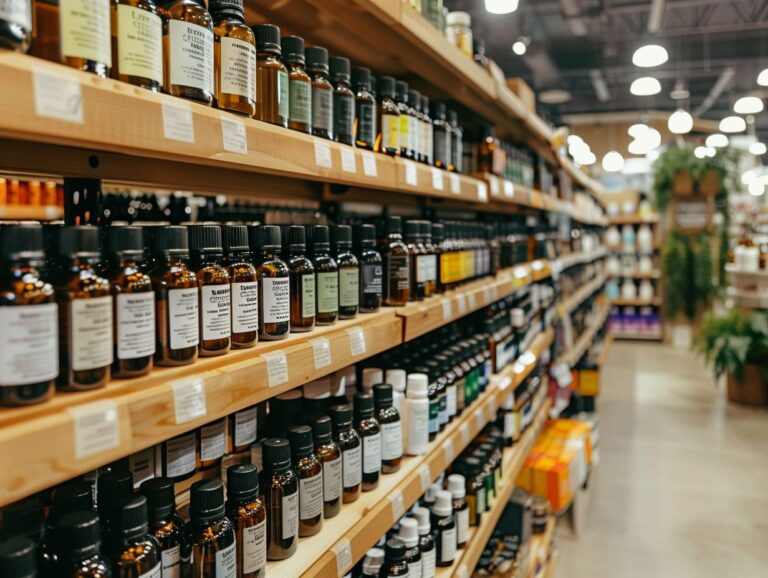
One Comment